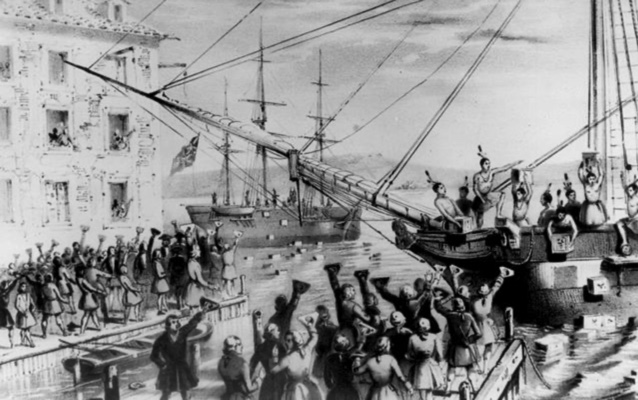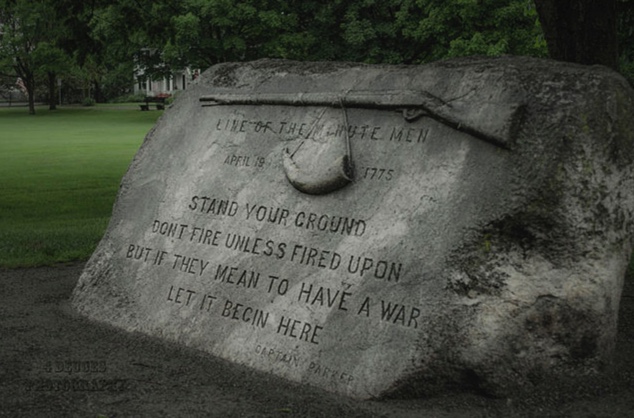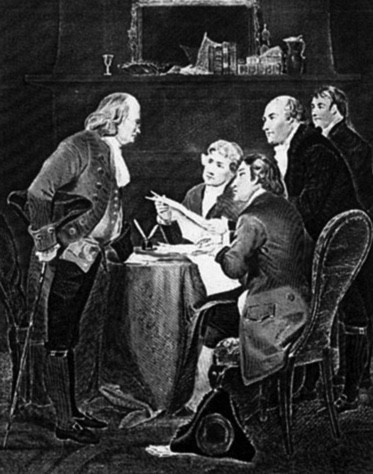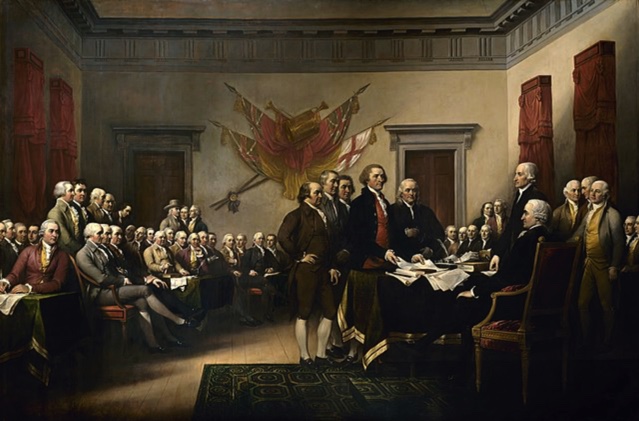The Fourth of July
Next week the Fourth of July marks our 247th independence anniversary. Just don’t tell that to John Adams…
While independence was a long journey, events accelerated in 1774. The first Continental Congress met in Carpenter’s Hall in Philadelphia in September and October of that year. The British had just blockaded Boston Harbor and passed the Intolerable Acts in response to the Boston Tea Party.

The Continental Congress, while split on their ultimate aim, boycotted British trade, petitioned the King about their grievances, and requested the Intolerable Acts’ repeal. They also agreed to meet again in May, 1775 if they didn’t like Britain’s response.
They didn’t, and three weeks before Congress met again, the Revolutionary War’s first battles happened in Lexington and Concord.

The Second Continental Congress had a war on its hands and governed until the Articles of Confederation were ratified six years later.
The Independence Vote
On June 7, 1776, Virginia delegate Richard Henry Lee put forward an independence motion. John Adams from Massachusetts seconded it. However, Congress could not immediately vote on it because delegates from five colonies could not vote on independence. The Congress didn’t want to push those colonies away from the proposed union. It delayed the vote until July 1st so the delegates could receive new instructions and independence could gain steam.
In the meantime, Congress appointed a five-man committee to draft a declaration of independence.
Thomas Jefferson of Virginia, John Adams of Massachusetts, Roger Sherman of Connecticut, Benjamin Franklin of Pennsylvania, and Robert Livingston of New York.

The committee presented a draft that was mainly Jefferson’s work on June 28th. Congress took it up on July 1st. Nine states then favored independence, with South Carolina and Pennsylvania opposing, Delaware split, and New York abstaining.
Edward Rutledge of South Carolina asked for the final vote to be postponed for a day, and on July 2nd the independence vote passed. South Carolina voted in favor, a fifth Delaware delegate pushed that colony’s vote to yes, two initial no votes from Pennsylvania abstained so that colony was now a yes, and New York allowed its delegates to be added to the yes camp later.
Celebrating Our Independence
John Adams always believed that July 2, 1776 was the date that America should celebrate its independence. He originally predicted a day filled with “bonfires and illuminations”. The cantankerous patriot even refused to appear at future 4th of July events in protest over the wrong date.
Congress heavily edited the Declaration and approved it on July 4th.

They signed it on August 2nd, but didn’t distribute it until after the Trenton and Princeton victories, so Great Britain couldn’t get an official list of traitors too early in the war.
The Revolutionary War did not officially end for another seven years – September 3, 1783.
America was governed by the Articles of Confederation and Perpetual Union until our current constitution was ratified in 1788.
Happy Fourth of July everyone!!!
Further Reading:
Best Presidential Biographies – Sharing a detailed list of recommendations for the best biography to read on each president, including some clunkers to avoid.
Ulysses Grant – the forgotten greatness of a real American hero who more than anyone except Lincoln kept the country together.
Presidents and Your Wealth – Wealthy Behavior podcast episode digging into the history of our country’s banking, currency, and overall economic system, and how key decisions made almost 250 years ago are the drivers of our wealth today.
